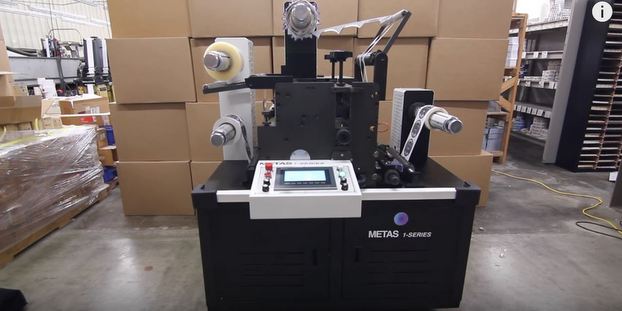
The label talk at last year’s Pack Expo was all about short runs, i.e., ordering something south of a truckload of labels. Short runs mean smaller craft brewers can more easily afford labels because you only need to order roughly what you’ll use. You pay more than for a larger order, but you don’t need to have the capital for a large run, and you don’t need to store huge rolls of unused labels.
Digital printing made this possible by doing away with the need to create a new plate for each label. With digital, you just need the label stock and a solid printer, and you’re off and running. Most printers now offer both flexographic and digital printing, meaning more options to fit your aesthetic and your budget.
And this year at Pack Expo Las Vegas 2017, many printing companies showcased on-site printing solutions that let you print your own short runs right in your office, effectively turning your microbrewery into a microprint shop.
QuickLabel
I have to admit these guys were new to me, but in fact their parent company, AstroNova, was the first to move into desktop digital printing for commercial-industrial use — way back in 1994! They were first, and they’re still industry leaders in this space with their high-speed, high-resolution printing solutions. Here’s a cute animation giving you the gist of digital printing.
QuickLabel offers several desktop machines in both pigment- and dye-based, each of which comes with the design software you need to layout your labels and send them to the printer. Their Kiaro! line can print on many substrates (i.e., “materials,” if you’re still learning) in a wide range of sizes and speeds and can be integrated with your applicator.
Frank Knopf, regional sales manager, emphasized their authority in the digital label sector and the simplicity of working with them. They sell directly, supply the materials (yes, the substrates) and provide tech support for the life of the machine.
Epson
Epson is making some big moves against companies like QuickLabel with their ColorWorks and SurePress digital printers. Besides having the power of a huge corporation behind them, they claim to be the only company, besides HP, that manufactures every part of the printing process, from the printers to the inks to the software that runs everything.
Now, you can decide for yourself what to make of that claim, since the print controller was developed through a partnership with Loftware. The intellectual property, at least, belongs to Epson, and the software contains a native Epson driver, so it’s still very much an Epson product.
Most of the new digital printing software allows you to do some version of creating unique labels from batch or seed files. The Loftware Epson software go enterprise-level with this and integrates with ERPs (Enterprise Resource Planning systems) like SAP and Oracle. Where this gets cool is if you need to switch or add languages for an order or provide region-specific information. You can create and apply whatever logic your business requires, and the labels will adjust automatically.
Probably most breweries will do fine with a ColorWorks printer. The higher-end C7500 prints full-color, pigment-based labels on a variety of substrates at speeds up to 1 ft/s. If you’re producing massive amounts of labels, you might look at the larger, more industrial SurePress. In addition to their ruggedness, they also use PrecisionCore technology, which produces finer detail and really superior color gradients.
METAS 1-Series Finisher
If you know much about labels, then you know there’s the conversion step and the finishing step. In the first, the printer takes your design and prints it onto the label stock. In the second, a machine die-cuts the labels to whatever size and shape they’re supposed to be.
METAS has a range of label solutions for breweries, but at Pack Expo they proudly displayed their 1-Series Finisher.
This machine lets you do the finishing yourself. Feed it printed labels on one end, and it will laminate them, re-register them (i.e., line them up again using sensors and a proprietary coding system), and then die-cut them (as many as fit on a roll up to 13 inches wide), removing any waste, and roll them up again so that they are ready for the applicator.
The big advantage of handling the finishing yourself is the time and cost savings. If you only have a digital printer, you will need to order pre-die-cut labels. This can add a cost anywhere from 50 to 400 percent, depending on your substrate and volume. With a finisher in-house, you can order non-die-cut, blank substrate, then print and finish on-site, on-demand, for significant cost savings.
They told me of one of their clients who actually use flexographic printing most of the time. However, if their print order doesn’t come in on time, the cost of one line having to sit around waiting for labels was something like $100,000 every couple hours. They bought a digital printer and a 1-Series just for those emergency situations.
That said, keep in mind this is for the lower end of print-runs, but if you’re in that sweet spot that METAS likes to target, they can help you begin printing labels yourself — from the printer to the labels and finisher — for around $50,000. Again, depending on your volumes, this can pay for itself in anywhere from six to 18 months.
HP
The folks at HP were very excited to show off their new SmartStream Mosaic software. This is like digital printing on fleek. It’s allowed them to go beyond cropping backgrounds from a seed file to creating new forms of interaction with brands.
They developed the software with Diet Coke Indigo in Israel for what became their Extraordinary Campaign. The software uses up to 100 seed files to dynamically crop, layer, blend, whatever and code each label. Consumers could then take their bottle, with its entirely unique label art, to Diet Coke Indigo events where they scanned the code and printed out T-shirts, cell phone cases and other merch with that unique bottle design on it. It literally becomes your bottle art that you can apply across multiple products.
The video below shows how innovative and creative the campaign was, and the vlog below that describes the technology in further detail.
“Once you show a brand what they can do, they get really creative,” says Bob Raus, category manager of workflow and partner programs.
Just for fun, you might also compare the Israeli campaign to the way Diet Coke U.S. unrolled a similar concept in the United States with their “It’s Mine” campaign. “Extraordinary” vs. “It’s Mine.” Goes to show you what they think about us Americans.
Weber Packaging Solutions
Weber manufactures label and coding equipment as well as label stock. At Pack Expo this year they were talking about their new partnerships with both Epson and Packleader, which allow them to get you set up with whatever you need regardless of whether they make the machine themselves. For craft beer, they have pressure-sensitive label (PSL) applicators ranging from table-top to high-speed, high-volume systems. You can see a video of the table-top machine by clicking here and looking for the Bottle-matic videos.
The other exciting news for Weber was the launch of Go-Label.com, an e-commerce platform that allows you to make your own short-run label orders like you would order business cards from Office Depot. If you just want someone else to do the printing for you, but you want some amount of feeling like you’re in the driver’s seat, this might be the way to go for you.
Pack Leader USA
No matter how you print your labels, you’ll need a labeler or applicator. Pack Leader USA exhibited two label machines geared toward craft beer. Both are wrap around labelers. The ELF-50 ($10,000) sits on a table top, where you manually feed it dry bottles at rates up to 40 labels per minute.
The PL-501 ($20,000) can integrate into your line, apply wet or dry and hit closer to 100 labels per minute.

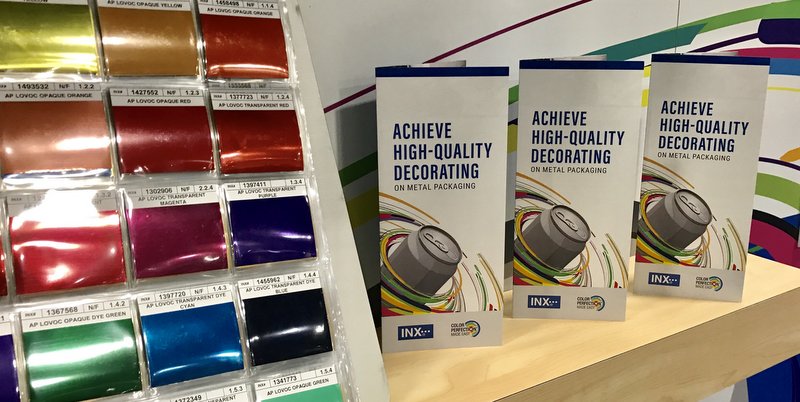
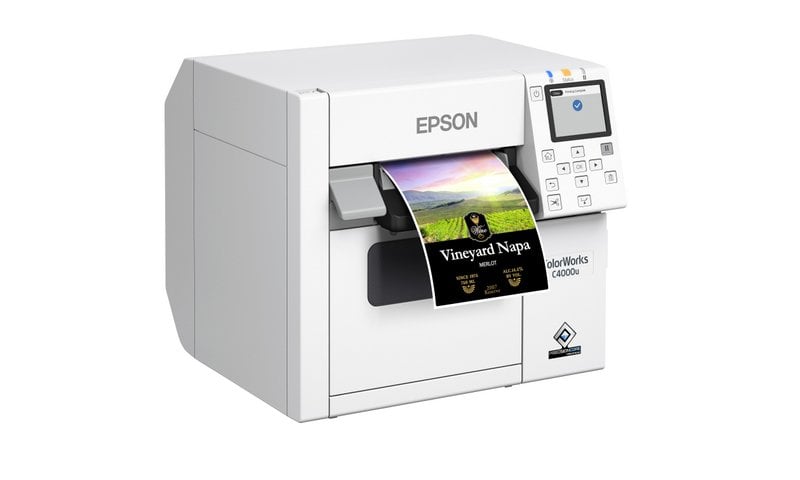
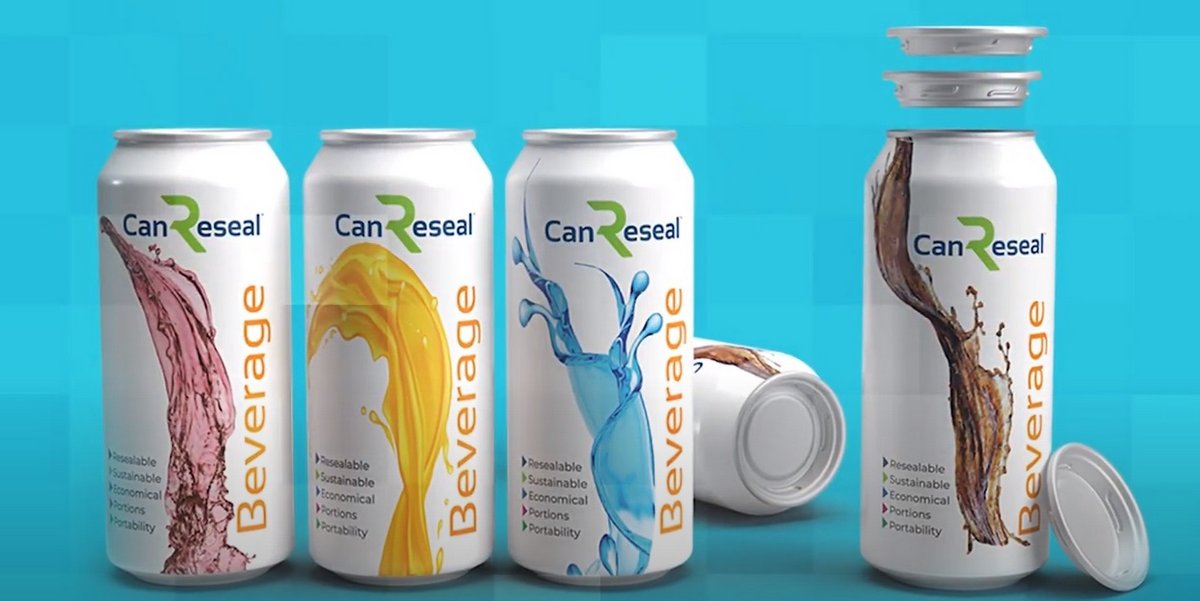
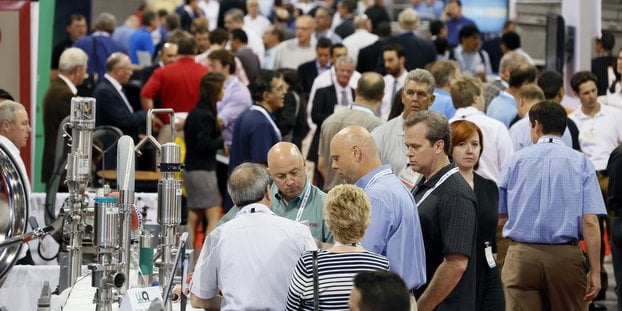

Leave a Reply
You must be logged in to post a comment.